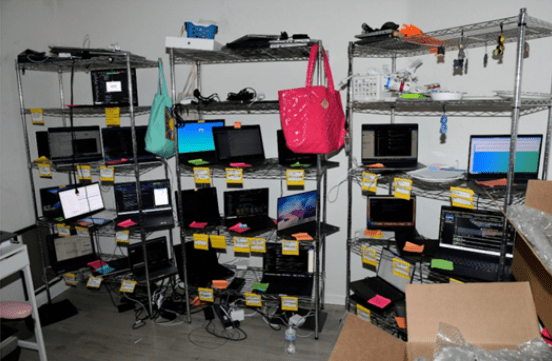A Story Through the Decades
Back in 1924, American homes were sometimes fronts for speakeasies, dishing out illegal drinks during Prohibition. Fast forward to 2020, and some homes became hideouts for Bitcoin miners. Now in 2024, an Arizona home transformed into a covert data center run by North Korean hackers. One US resident connected to this bizarre story is Christina Chapman, who is now facing prison time for her unexpected role in the operation.
Life in the Shadows: Chapman’s Unfortunate Scenario
After being caught up in a federal investigation, Christina Chapman has been sentenced to 8.5 years behind bars, along with three years of supervised release and the obligation to repay a hefty bill—potentially hundreds of thousands of dollars in restitution. It’s hard to believe, but Chapman had to know her actions were illegal; she even mentioned in a chat log, “I can go to federal prison for falsifying federal documents.” However, it’s also clear that she’s been caught up in a mess much larger than herself.
The 50-year-old was just looking for a remote job, to support her mother who was battling cancer. What was supposed to be a job helping her family turned into a nightmare. The position turned out to be a cover for workers who were actually North Korean agents disguised as American citizens, infiltrating companies across the US and taking both money and secrets in the process.
The Mechanics of the Operation
Using tactics like identity theft along with VPNs and proxies, these “agents” pretended to work remotely while operating from a purposely hidden location back in North Korea—a place that’s plagued by heavy sanctions. And the fallout? According to the FBI, the scam boasted a staggering $17 million in fraud when it all came to light.
United States Department of Justice
The Role of an Innocent Bystander
Reports from Ars Technica revealed that Chapman ended up being the “warm body” on US soil. Not only did she receive and send paychecks, but she also managed company laptops—not just operating them herself at times but also shipping them through to parties in China headed toward North Korea. When the authorities finally swooped in, they discovered over 90 laptops running endlessly in her home, forming an improvised data center.
Corporate Landscape Targeted
The scammers were supposedly posing as employees for all sorts of big-name companies—from top TV networks and tech giants to legendary automotive manufacturers. Many of them were among Fortune 500 companies, like Nike. This just shows the extent of the operation and how it infiltrated businesses most people would barely believe could be at risk.
Hacking Legacy and Personal Reflections
North Korea has built a notorious reputation in the cyber world, with a long history of dangerous hacks and malware operations. Take the 2014 Sony Pictures hack, for example, carried out in response to the satirical movie The Interview, which humorously portrayed the country’s leader. In recent years, the attacker focus has shifted towards high-value operations, primarily involving ransom and hacking for insider intelligence. And with a new wave of remote working apps, attacks based on faking remote job applications have surged, creating frustrations for many unsuspecting businesses.
Before her sentencing, Chapman expressed her gratitude, thanking the FBI for their investigation despite her looming prison sentence. “I had been trying to get away from the guys I was working with for a while…this may not have been the perfect escape, but it worked—so I’m thankful,” she shared in a heartfelt letter.





















